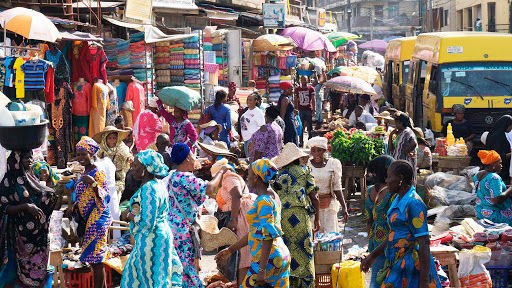Nigeria needs to undertake swift and audacious reforms to stop the rapid decline of its economy and the resultant negative impact on its citizens, a report released today (Monday) by Agora Policy, an Abuja-based policy think tank, has advised.
Agora’s maiden report, entitled ‘Options for Revamping Nigeria’s Economy’, declares that despite posting positive GDP growth in six consecutive quarters and having the biggest GDP in Africa, Nigeria’s economy is not in sound health.
- Dull moment in Obajana as Kogi gov’t, Dangote move to court
- Kaduna gaffe: Tinubu is sick, can’t withstand rigours of governance – Atiku’s aide
“Many of the macro-economic fundamentals have worsened and the level of inclusive development is low,” says the report, which analysed Nigeria’s economic datasets from 2011 to 2021.
“Nigeria needs to undertake swift, bold, and far-reaching reforms to halt the precipitous decline and the attendant negative impacts on citizens’ welfare. These reforms must be undergirded by inclusion, transparency and accountability,” it said.
According to the report, Nigeria’s economy is in desperate need of quick and bold actions to get out of the rut of low and fragile growth, lean and narrow revenue and export base, soaring debts and deficits, limited trade and investment, suboptimal government spending, and growing inflation, unemployment and poverty.
Nigeria, the report states, needs “to deepen and diversify sources of revenue, re-calibrate expenditure to spend smartly, and invest efficiently. To achieve this, a re-thinking of drivers of the economy is needed.”
Some of the prescribed actions will require not just deft economic management but also strong political will, effective communication and trust building. They include removing the progressively ruinous petrol subsidies, increasing tax revenue, curbing the growing and suffocating appetite for debts, ending restrictive trade practices, and adopting a more realistic and transparent exchange rate regime.
The report identifies the domestic and external drivers of the key challenges confronting Nigeria’s economy and provides options for reforms, especially in terms of government revenue, debt, trade and investment, inflation, interest and exchange rates, and unemployment and poverty.
According to Waziri Adio, the founder/Executive Director of Agora Policy, the decision to focus on the economy was driven by the need to expand policy and programmatic options for the current and next administrations.
“Everything revolves around the economy and there is no better time than the electioneering period to do a health check on the economy and come up with ideas and prescriptions for better economic outcomes,” Adio says.
Data points from the report show that Nigeria has not only underperformed its peers but also regressed on most socio-economic indicators between 2011 and 2021.
The report shows, for instance, that the finances of the federal government have been defined in the last decade by a stark mismatch between expenditure and revenue on one hand and by an explosion of debts and deficits on the other.
For example, while the federal government’s expenditure rose by 179% from N4.48 trillion in 2011 to N12.51 trillion in 2021, its actual revenue increased by only 81% from N2.57 trillion in 2011 to N4.63 trillion in 2021.
It notes that the growing gap between expenditure and revenue has been bridged with growing debts, translating to a 436% rise in FG’s debt from N6.17 trillion in 2011 to N33.11 trillion in 2021.
Significantly, domestic debt rose by 242% from N5.17 trillion in 2011 to N19.2 trillion in 2021 while external debt increased by 2,435% from N546 billion in 2011 to N13.86 trillion in 2021.
However, the report noted that the increase in expenditure and debts has not translated to improvement in human welfare.

 Join Daily Trust WhatsApp Community For Quick Access To News and Happenings Around You.
Join Daily Trust WhatsApp Community For Quick Access To News and Happenings Around You.


